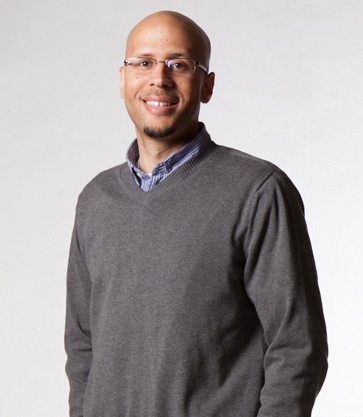Sense of purpose makes molehills out of mountains
By Susan Kelley

Having a purpose in life can make an uphill climb seem like a walk in the park. A Cornell developmental psychologist in an outdoor laboratory has found that people with a sense of purpose are more likely to perceive a steep hill as easier to climb.
“When purposeful people see a lot of work ahead of them, they don’t necessarily think it is going to be overwhelming or daunting. Instead, they may be motivated to think ‘I’m still going to try to climb this.’ For them, higher and steeper doesn’t mean harder,” said Anthony Burrow, assistant professor in the Department of Human Development in Cornell’s College of Human Ecology.
Burrow’s research was published Nov. 13 in Personality and Social Psychology Bulletin. The study, “Leveling Mountains: Purpose Attenuates Links Between Perceptions of Effort and Steepness,” is the first to look at how life purpose relates to visual perceptions of physical challenges.
Burrow conducted a series of studies in which students at the bottom of Libe Slope were asked to write for three to five minutes about a movie or a goal they wanted to accomplish that day. At the top of the hill, they were asked how difficult the climb was and to estimate the hill’s steepness. The steeper they felt the hill was, the more effort they said they expended to climb it.
Other students at the bottom of the hill were asked to write about their long-term purpose in life. Purpose was defined as an intention that will benefit one’s self as well as others that does not have a end-point, such as, “Work as a doctor to serve the sick” or “Help my family.” Unlike the control groups, those who wrote about their life purpose were no more likely to judge the hill as taking more effort to climb even when viewing it as steeper, Burrow found.
“When confronted with challenges that would otherwise motivate avoidance, purposeful people may have another gear that helps them reap the benefits of facing those challenges head on. They don’t turn off, avoid it and find easier routes. They seem to stay the course,” Burrow said.
Usually there’s a tight relationship between the physical world we perceive and our judgment of how easy or difficult it will be to interact with it, Burrow said. “For most of us, when we see a steep hill, we think it will take a lot of energy to traverse it. When we see a sidewalk, we think that will take less energy to traverse.” But people with a sense of purpose experience a looser relationship between their perceptions and their estimates of how easy or difficult it will be to engage with their physical environment.
Burrow was inspired to create the study when a student approached him after a class and apologized for not having attended the last two sessions. Burrow asked him why. “I just couldn’t make it up the slope,” the student said. Why he was able to come that day? The student said he realized that he wasn’t going to do well in the class unless he attended. “I was motivated to come,” the student said.
In effect the student was saying that motivation was a factor in how he perceived the obstacle of the slope. The hill was surmountable once he started thinking that his ability to earn a high grade would be contingent on his attendance. “These studies are asking the question, Can you actually motivate people to construe the world in a way that is a little bit more surmountable?” Burrow said. “The answer is yes.”
Media Contact
Get Cornell news delivered right to your inbox.
Subscribe